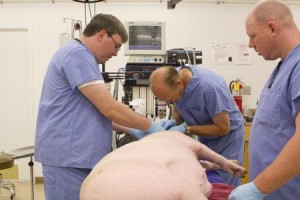For several decades CARE’s exceptional team of scientists including toxicologists, pathologists, veterinary surgeons, regulatory specialists, and support personnel has designed and performed safety programs ranging from acute through chronic toxicity.
Acute toxicity describes the adverse effects of a substance which result either from a single exposure or from multiple exposures in a short period of time (usually less than 24 hours). To be described as acute toxicity, the adverse effects should occur within 14 days of the administration of the substance.
Our evaluation of acute toxicity data includes the relationship between the exposure of animals to the test substance and the incidence and severity of all abnormalities, including behavioral and clinical abnormalities, the reversibility of observed abnormalities, gross lesions, body weight changes, effects on mortality, clinical pathology, histopathology, and any other toxic effects as required by the client.
Our data from acute studies in rodent and non-rodents are used in conjunction with future repeat-dose data to aid in the determination of doses, routes, formulations, and regimens to be used in potential clinical studies. Non-GLP acute studies use a minimum number of animals and end-points and are intended to provide data used to make a go/no-go decision with respect to more a GLP study or more definitive studies.
Species available include mice, rats, hamsters, guinea pigs, rabbits, canine, swine, sheep, poultry, and large farm animals.


